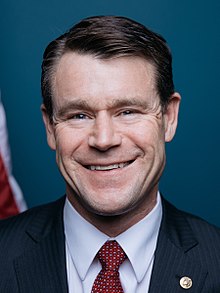Young, Senators Introduce Bipartisan Legislation to Test Portable Benefit Models

Last week, U.S. Senators Todd Young (R-Ind.) and Mark Warner (D-Va.) introduced legislation to test innovative portable benefit designs for the growing independent workforce.
The Portable Benefits for Independent Workers Pilot Program Act seeks to provide these workers with access to benefits typically provided through traditional full-time employment. This legislation would establish a $20 million grant fund within the U.S. Department of Labor to incentivize states, localities, and nonprofit organizations to experiment with portable benefits models for the independent workforce.
“Job opportunities in the gig economy provide workers with utmost flexibility, which is increasingly needed as parents continue to adjust schedules due to the pandemic,” Senator Young said. “Supporting portable benefit options helps uncover creative solutions to addressing the needs of our drastically changing workforce. I am pleased to reintroduce this bill to make it easier for Hoosiers find the job opportunity that best suits their family situation.”
“More Americans than ever are engaging in part-time, contract or other alternative work arrangements. As the workforce changes, it is increasingly important that we provide workers with an ability to access more flexible benefits that can be carried to multiple jobs across a day, a year, and even a career,” Senator Warner said. “This program will encourage experimentation at the state and local levels to find ways we can better support our independent, 21st century workforce.”
The legislation is co-sponsored by Sens. Angus King (I-Maine), Ben Sasse (R-Neb.), Michael Bennet (D-Colo.), and John Hoeven (R-N.D.).
While the composition of the workforce has changed, those who earn all or some of their income as independent contractors, part-time workers, temporary workers, or contingent workers find it difficult and expensive to access benefits and protections that are commonly provided to full-time employees, such as paid leave, workers’ compensation, skills training, unemployment insurance, tax withholding, and tax-advantaged retirement savings. As the workforce changes, employers and policymakers need to consider a system of portable benefits that allow workers to carry these benefits with them from job to job across a lifetime in the workforce.
The Portable Benefits for Independent Workers Pilot Program Act would establish a portable benefits pilot program at the U.S. Department of Labor. It authorizes a total of $20 million for competitive grants to states, local governments, and nonprofits for pilot projects to design, implement and evaluate new models or assess and improve existing models for portable benefits for independent workers such as contractors, temporary workers, and self-employed workers. Eligible models should provide any number of work-related benefits and protections – such as retirement savings, workers compensation, life or disability insurance, sick leave, training and educational benefits, health care, and more. In order to encourage innovative thinking on these challenging issues, programs focused solely on retirement-related benefits will not be eligible. In awarding grants, the Secretary of Labor is directed to prioritize models that can be replicated on a large scale or at the national level.
